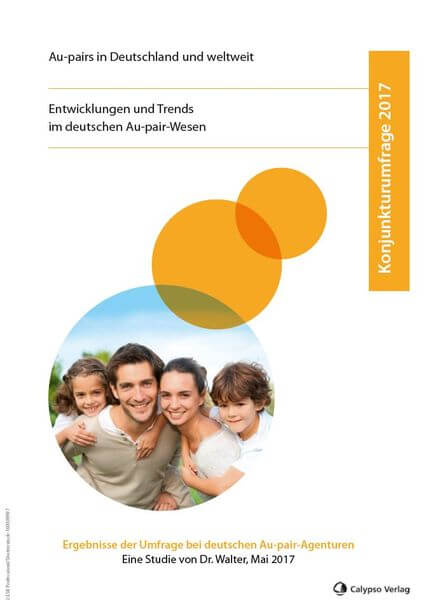Business Survey 2017 - Au pair placement popular all over the world
10.05.2017
Despite a certain insecurity over Brexit and the Trump presidency, au pair placement in the UK and the US continues to be popular among young Germans. In 2016, approx. 13,000 foreign au pairs came to Germany - 1,000 more than the year before.
How did the attitudes of potential au pairs develop and what can their future guest parents expect from that? What do both sides expect from the exchange program? Which effect do political and legal developments have in individual countries? The survey "Au pairs in Germany and worldwide" carried out by au pair insurer Dr. Walter, provides current data and information on au pairs and host families.
Au pairs’ countries of origin and places of residence
More than half of the au pairs in Germany, approx. 6,500, are European. Another 6,000 au pairs came on a visa, most of them from Ukraine, Georgia, Nepal, Tanzania and Colombia. The most popular destinations among young Germans were the USA, Australia and New Zealand. The most popular destinations in Europe are the UK, France, Ireland and Spain.
Effect from Brexit and Trump
Both the UK’s vote to leave the European Union as well as the presidency of Donald Trump are likely to have a negative effect on the longstanding tradition of au pair placement in those countries. At least according to two thirds of the au pair agencies participating in the survey. Nationalist movements and the principle of an au pair placement do not go well together.
Au pairs prefer to live in cities
Most au pairs who come to Germany live in southern Bavaria, Baden-Württemberg and the Rhein-Main area. Having an au pair is no longer just an upper-class thing. Where only families who are better off used to have au pairs, nowadays also more and more average earners can afford to have an au pair. Host families in rural regions, however, often find it difficult to find an au pair since most au pairs prefer to live in large cities that are culturally more appealing and where a large number of young people live.
More male au pairs and single parents
Nowadays, more and more young men also consider au pair placements to be very useful for their personal development. An increasing number of host families and particularly single mothers who take in an au pair also appreciate male au pairs for their children. As a result, new forms of living together have established next to the traditional family model of father, mother and children.
High expectations and potential for conflicts
The usual time that young Germans stay abroad has slightly increased to 10-12 months. Simultaneously, there are growing expectations on behalf of both families and au pairs. In case of conflict, those involved tend to give up quicker due to these high expectations and because it is rather easy to find a new au pair online. The majority of au pair placements is nowadays carried out by matching agencies, large providers of youth and exchange programs as well as agencies awarded with the RAL Quality Seal or providing the quality standards of the Au Pair Society.
Comprehensive data source
As one of few sources on au pair placement in Germany, the survey "Au pairs in Germany and worldwide" provides comprehensive data. It is based on the results of a representative survey among 65 au pair agencies as well as interviews with au pair experts. The business survey is carried out annually by insurance expert Dr. Walter and published by Calypso Verlag.
For a free download of the full survey conducted by Dr. Walter, go to this link.

